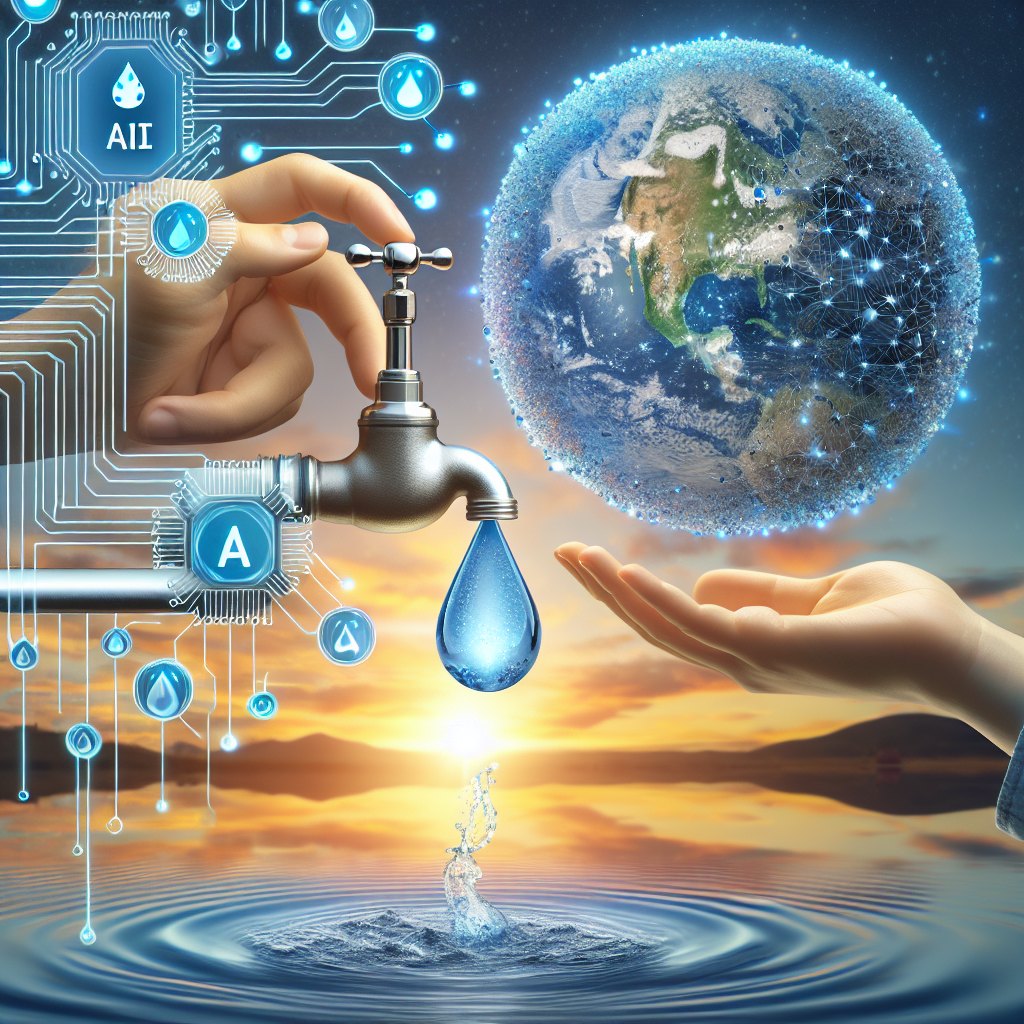AI and Water Security: Innovations for Sustainable Access
Water is essential for life, yet millions of people around the world still lack access to clean and safe drinking water. With the increasing threats of climate change and pollution, ensuring water security has become a pressing global issue. In this context, artificial intelligence (AI) is emerging as a powerful tool to address water security challenges and improve access to clean water for all.
AI technologies have the potential to revolutionize the way we manage water resources, from monitoring water quality to predicting water availability and optimizing water distribution systems. By harnessing the power of AI, we can enhance water security, promote sustainable water management practices, and ensure equitable access to this vital resource.
One of the key areas where AI is making a significant impact on water security is in water quality monitoring. Traditional methods of water quality monitoring are often time-consuming, labor-intensive, and expensive. With AI-powered sensors and data analytics, we can now monitor water quality in real-time, detect contaminants, and predict water quality trends with greater accuracy and efficiency.
For example, researchers at Stanford University have developed an AI-powered system that can detect harmful bacteria in water samples within a matter of hours, compared to traditional methods that can take days or even weeks. This rapid detection technology has the potential to prevent waterborne diseases and protect public health by enabling authorities to take immediate action in response to water quality issues.
AI is also being used to predict water availability and manage water resources more effectively. By analyzing historical data, weather patterns, and other factors, AI algorithms can forecast water availability in a given region and help decision-makers plan for droughts, floods, and other water-related challenges. This predictive modeling can inform water management strategies, optimize water allocation, and enhance resilience to climate change impacts.
In addition to monitoring water quality and availability, AI is transforming water distribution systems and infrastructure management. By integrating AI algorithms with smart sensors and Internet of Things (IoT) devices, we can optimize water distribution networks, detect leaks and inefficiencies, and reduce water losses. This smart water management approach can improve the efficiency of water distribution systems, conserve water resources, and reduce operational costs for water utilities.
Furthermore, AI-powered decision support systems are helping policymakers and water managers make informed decisions about water resource management. By analyzing vast amounts of data and simulating different scenarios, AI can provide valuable insights and recommendations for sustainable water management practices. These AI-driven solutions can support evidence-based decision-making, enhance water governance, and promote long-term water security goals.
Overall, AI has the potential to revolutionize the way we manage water resources and ensure sustainable access to clean water for all. By leveraging AI technologies, we can enhance water quality monitoring, predict water availability, optimize water distribution systems, and support decision-making processes in water management. These innovations are crucial for addressing water security challenges, promoting water sustainability, and achieving the United Nations Sustainable Development Goal of ensuring access to clean water and sanitation for all by 2030.
FAQs:
Q: How can AI help improve water quality monitoring?
A: AI technologies can enable real-time monitoring of water quality, detect contaminants, and predict water quality trends with greater accuracy and efficiency. By analyzing data from sensors and other sources, AI algorithms can identify potential water quality issues and enable authorities to take immediate action to protect public health.
Q: What are some examples of AI applications in water management?
A: AI is being used to predict water availability, optimize water distribution systems, detect leaks, and inefficiencies, and support decision-making processes in water management. These applications can enhance water security, promote sustainable water management practices, and ensure equitable access to clean water for all.
Q: How can AI support decision-makers in water resource management?
A: AI-driven decision support systems can analyze vast amounts of data, simulate different scenarios, and provide valuable insights and recommendations for sustainable water management practices. These AI-powered solutions can inform evidence-based decision-making, enhance water governance, and support long-term water security goals.
Q: What are the benefits of AI for water security?
A: AI technologies can revolutionize the way we manage water resources, from monitoring water quality to predicting water availability and optimizing water distribution systems. By harnessing the power of AI, we can enhance water security, promote sustainable water management practices, and ensure access to clean water for all.
In conclusion, AI is a powerful tool for addressing water security challenges and improving access to clean water for all. By leveraging AI technologies, we can enhance water quality monitoring, predict water availability, optimize water distribution systems, and support decision-making processes in water management. These innovations are crucial for promoting water sustainability, enhancing water security, and achieving the goal of ensuring access to clean water for all.

